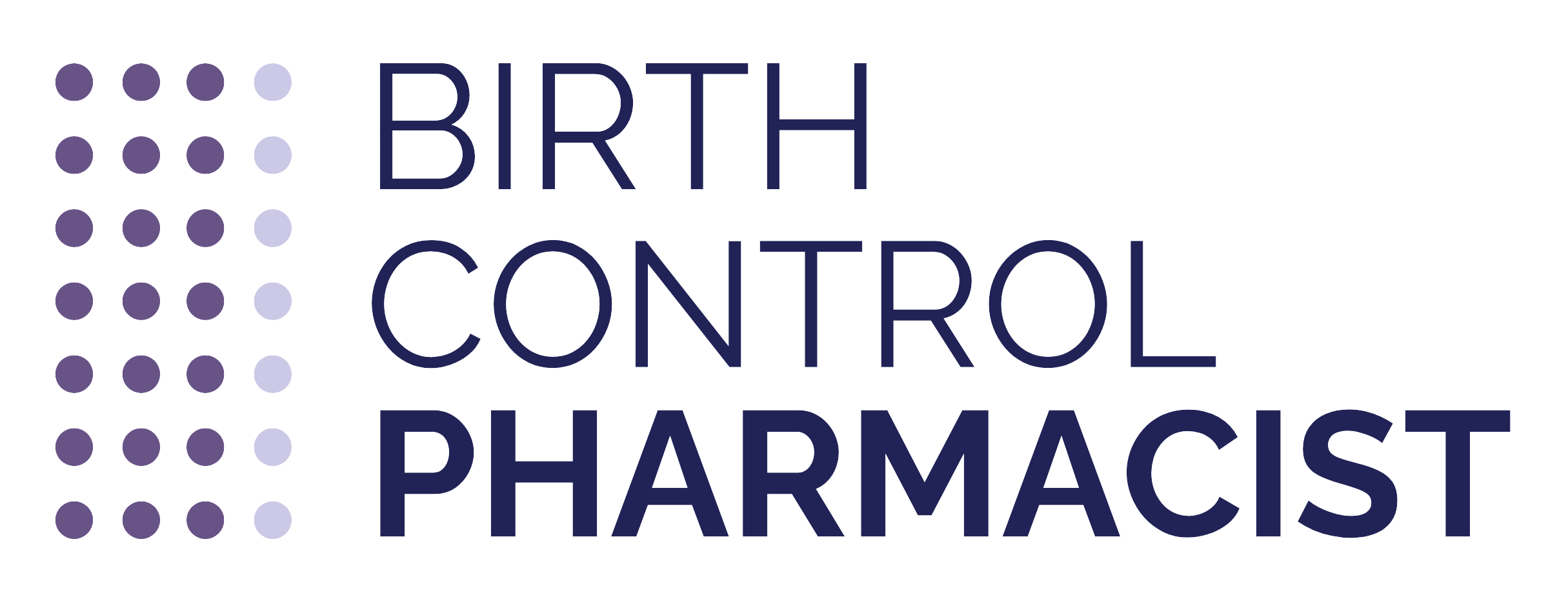
Is it Safe for Birth Control Users to Go Years Without a Period?

Conversations about contraceptive options have grown more frequent—and often more polarized—on social media platforms.
In recent years, conversations like these about contraceptive options have grown more frequent—and often more polarized—on social media platforms. While public awareness and discussions can be valuable, it's essential to separate facts from misinformation when making health decisions.
In this article, we’ll explore how birth control works, address common myths circulating online, share expert insights on skipping periods, and examine the arguments against menstrual suppression.
As pharmacists, it's vital to understand the concerns of patients using or considering contraceptives, the media influences shaping their perceptions, and how we can support informed decision-making. By doing so, we help improve access to reproductive health care and build trust in clinical guidance.
How Birth Control Works: A Quick Refresher
Hormonal Contraceptives
Nonhormonal Methods
Nonhormonal contraceptives prevent pregnancy through a variety of mechanisms, but they all do so without altering cervical mucus, thinning the endometrium, or suppressing ovulation, in contrast to how hormonal birth control typically works.
Nonhormonal methods include vaginal pH modulator gel, external (male) condoms, internal (female) condoms, spermicide, contraceptive sponges, cervical caps, diaphragms, copper intrauterine devices (IUDs), and permanent procedures. These methods, besides some permanent procedures, do not suppress menstrual bleeding.
Period vs Withdrawal Bleed
For those using hormonal birth control, what may be perceived as a monthly period is actually a “withdrawal bleed.” This bleeding occurs during the placebo week of pills or the hormone-free days of patches or rings, and it’s caused by a temporary drop in hormone levels, not by a natural menstrual cycle. Understanding this difference is essential when delving deeper into a discussion on skipping these hormone-free intervals altogether.
Different Types of Birth Control That Can Stop Periods
- Combination Pills (used continuously)
- When taken continuously without the placebo pills, combination birth control pills prevent monthly withdrawal bleeds.
- Vaginal Rings and Patches (when used continuously)
- Using vaginal rings or patches without the typical hormone-free break can prevent withdrawal bleeding.
- Progestin-Only Pills
- Progestin-only pills, also known as the mini-pill, may lead to lighter or absent periods over time, though effects vary by individual.
- Injection (eg Depo-Provera)
- Depo-Provera is a progestin injection given every three months that commonly leads to lighter periods or complete menstrual suppression.
- Implant (eg Nexplanon)
- The birth control implant slowly releases progestin into the body, and many users experience reduced bleeding or no periods at all.
- Hormonal IUDs (eg Mirena, Liletta)
- Hormonal IUDs release progestin locally in the uterus and often reduce or stop periods altogether after several months of use.
The Rise of Social Media Doctors
Social media platforms like TikTok, YouTube, and Instagram have become major sources of health information, often more influential than traditional healthcare for younger audiences. While some content is helpful, misinformation can also be spread quickly. Myths like “you must bleed monthly to be healthy” or “skipping periods causes toxin buildup” lack scientific backing but continue to shape public perception. It’s crucial to rely on licensed healthcare professionals for evidence-based guidance tailored to your individual needs, rather than viral trends.
What the Experts Say: Is It Safe to Skip Periods Long-Term?
Medical Consensus
Major health authorities, including the
“Menstrual suppression can be a valuable medical intervention for people who menstruate but whose health and quality of life would be improved by reducing periods,” said Oluyemisi Adeyemi-Fowode, MD, FACOG, one of the Clinical Consensus authors and a specialist in pediatric and adolescent gynecology on
Health Benefits
For many, fewer periods can mean fewer problems. Skipping periods may help reduce menstrual cramps, lower the risk of iron-deficiency anemia, and
Clearing Up the Myths
Despite lingering myths, periods are not a way for the body to eliminate toxins. Menstruation isn’t a detox system, and skipping it doesn’t cause harmful buildup in the body.
What Happens to the Uterine Lining?
Hormonal birth control prevents the uterine lining from thickening the way it naturally would without contraception. That means there's no dangerous accumulation of tissue when periods are skipped using hormonal methods.
Understanding the Opposition: Why Some People Are Concerned
Some people feel uneasy about using birth control to suppress periods, often voicing concerns like:
- “It’s unnatural.”
- “We don’t know the long-term effects.”
- “Women need to cycle to stay in balance.”
These beliefs are often tied to deeper issues, such as historical medical gaslighting, distrust in pharmaceutical companies, or the influence of “natural wellness” movements. While it’s important to validate these concerns, scientific research and decades of clinical use provide strong reassurance about the safety of menstrual suppression.
“Some of my patients worry the lining of their uterus will 'build up' if they skip their period. That’s not true. These birth control methods thin the lining of the uterus, and there isn’t anything to shed," Valerie French, MD, FACOG, said in an article for ACOG.
Long-term use of hormonal contraception for menstrual suppression has been well studied and is supported by experts.
Empowering Informed Choices
Whether your patient prefers to have a monthly period or skip it entirely, both choices are valid.
Suppressing periods with hormonal birth control is safe for most people under medical guidance. The best approach is the one that works for your patient. Patients should talk with a pharmacist or healthcare provider to explore their options and make an informed decision that fits their needs.
Need more guidance? Join our
Newsletter
Pharmacy practice is always changing. Stay ahead of the curve with the Drug Topics newsletter and get the latest drug information, industry trends, and patient care tips.























